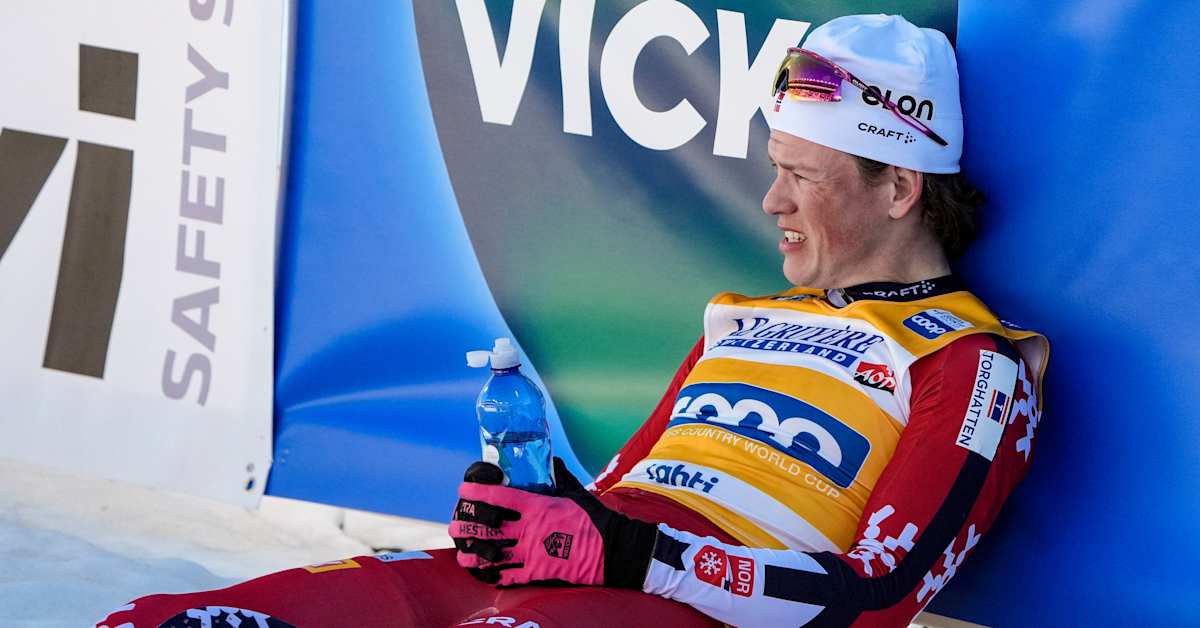
Questions over Johannes Høsflot Klæbo’s life changes answered by dominant form
Originally published in Yle on November 23, 2025
Finland’s domestic Ruka Finnish Cup served as the final tune‑up for national athletes before next weekend’s World Cup opener at the same venue. At the same time, international FIS races were held in Beitostølen (Norway) and Gällivare/Jällivare (Sweden).
In Beitostølen, Johannes Høsflot Klæbo was untouchable in the sprint and the 10 km classic. He skipped Sunday’s 10 km freestyle.
Norwegian outlet VG wondered whether Klæbo could maintain the same passion after a perfect home World Championships in Trondheim last winter. Klæbo has said he wants to live less ascetically and spend more time with his fiancée. Teammate Jan Thomas Jenssen suggested there are limits to how hungry an athlete can remain, and that rivals might exploit a post‑Trondheim ‘climax.’
Klæbo’s Beitostølen displays quieted the doubts, VG wrote, saying he was as strong as competitors feared. “Johannes must be one of the world’s best adapters. Whether it’s the Tour de Ski, a new season, whatever—it’s impressive how he adjusts,” praised Harald Østberg Amundsen. “People think I haven’t trained—they’re wrong,” Klæbo snapped back.
Reflecting on Trondheim, Klæbo called the World Championships the best days of his career. He eased off afterwards and has been in the headlines this autumn, including due to a new documentary about him. He says making changes to his formerly rigid daily routine has been healthy, without becoming careless about illness. “For championships I’m not very worried, but continuing the same way is a burden. I believe the changes I’ve made are positive, and as my quality of life improves, my skiing improves—they’re connected,” he said.
Rising Norwegian women
The women’s races in Beitostølen delivered a bombshell: Julie Bjervig Drivenes won the 10 km freestyle interval start, after placing third in the classic race the day before. NRK marveled that Drivenes, 26, and Karoline Simpson‑Larsen, 28, outpaced seasoned national team members—on an Olympic‑season distance, no less.
“Getting on the podium in Beitostølen is something I’ve dreamed of, especially in an Olympic year. Winning here in an Olympic season, on an Olympic distance, is even crazier,” Drivenes said. With eight prior World Cup starts (six in Norway) and a best of 24th, she now looks set for her first World Cup opener—and first races on Finnish soil—at Ruka.
Drivenes, once remembered for collapsing from exhaustion in Trondheim World Cup qualifying, opened up about struggles with performance pressure and back issues, saying those experiences helped her reach today’s level. “We can stop talking about that now—remember me for this. I hope it’s just the beginning,” she said. Runner‑up Simpson‑Larsen also expects to pack for Ruka; like Drivenes, she has not raced World Cups in Finland.
Swedish concerns in Gällivare
Unusual results appeared in Sweden as well. Long‑time national team members Jens Burman and Calle Halfvarsson finished nearly 90 seconds behind in the men’s 10 km freestyle interval start. The fastest time came from 25‑year‑old Johan Ekberg, who has only four World Cup starts. Halfvarsson was 24th and Burman 29th. Halfvarsson told SVT he and Burman laughed off the parody of their results, but added they now have to get a grip.
In the women’s 10 km, Frida Karlsson placed 10th, behind Japan’s Masae Tsuchiya, losing well over a minute to winner Ebba Andersson. “This was my worst season opener,” Karlsson said, citing little time on snow after altitude camp and poorly gliding skis.
The FIS Cross‑Country World Cup opens in Ruka on 28–30 November, with live coverage on Yle’s channels.
See Also
Klæbo Wins Again at Beitostølen One Week Before World Cup Opening in Ruka
November 23, 2024 / Eurosport
Beitostølen | Johannes Høsflot Klæbo and Ane Appelkvist Stenseth with superior victories: – Totally magical
November 22, 2024 / Eurosport
Klæbo Wins Again at Beitostølen One Week Before World Cup Opening in Ruka
November 23, 2024 / Eurosport
Beitostølen | Johannes Høsflot Klæbo and Ane Appelkvist Stenseth with superior victories: – Totally magical
November 22, 2024 / Eurosport